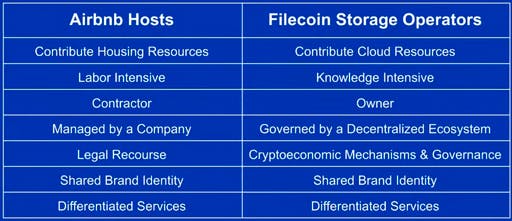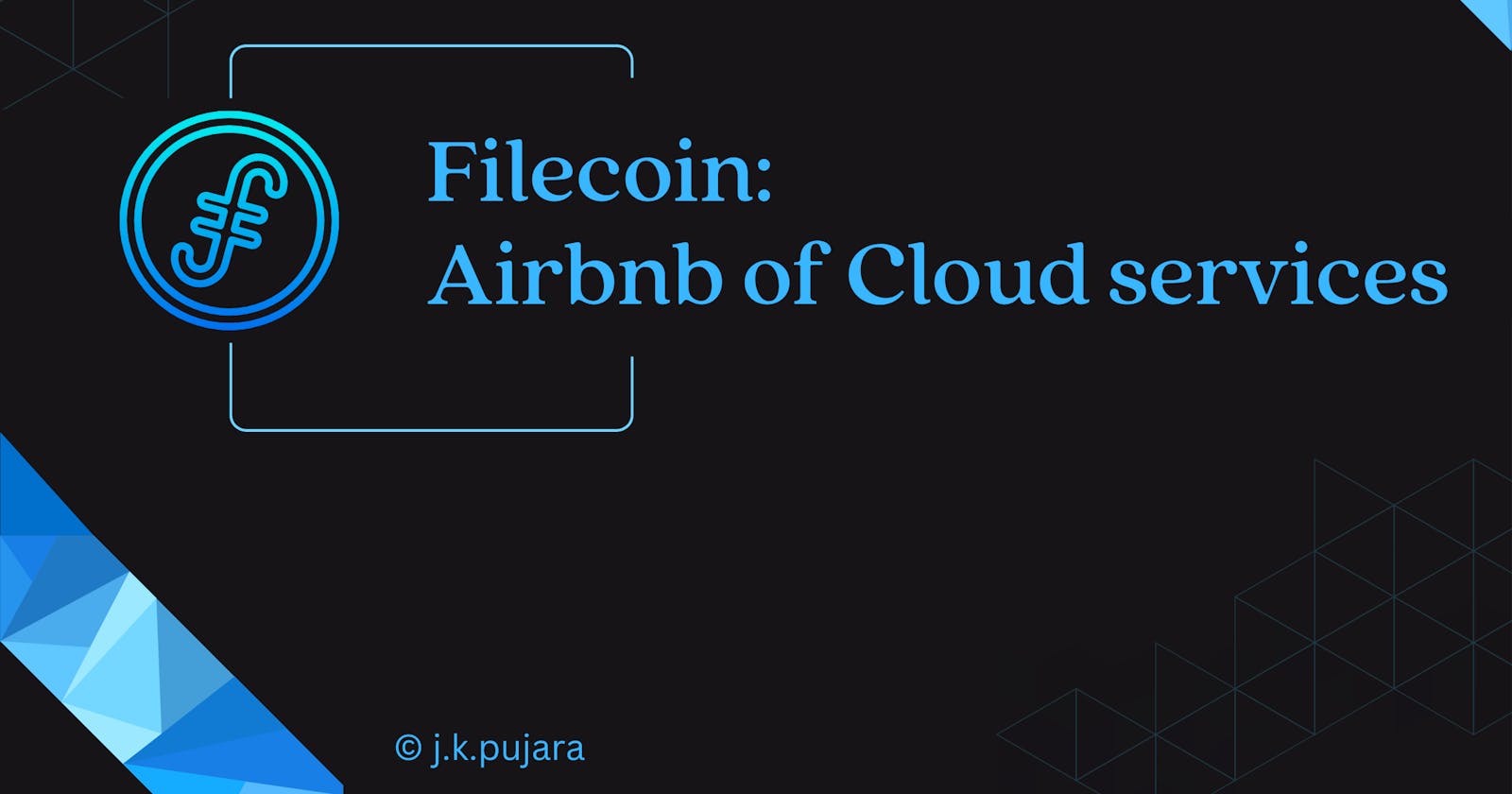Airbnb, a marketplace that involves renting property to travelers for stay during their travel days. Hosts are the ones who have extra space for accommodation to provide for rent. The property is listed on the site, and such properties are made available to travelers for choice. Filecoin, to simply state, can be termed as Airbnb of cloud services. The Nodes on this blockchain that have an excess of storage capacity lend it and are compensated with FIL. These nodes or storage-miners bid the storage space available with them, to the individuals who want to store their data securely and reliably.
Here is a quick look at the similarities between the two:

Source: youtube.com/watch?v=Yx1rtKcayuY#t=1h00m52s ZX Zhang
How Does Filecoin Work?
Storage: Let’s start with a situation. Suppose you want to store data on the filecoin network, you have to search for storage providers available in the marketplace and check their market prices as you will have to pay them for storing your data for you. Storage providers will compete in terms of providing better storage at a better price and will try to win the storage contract. You will then select the winning storage provider, the deal will be done and then the data will be shared with the storage provider. The time you give your data to store, there is an incentive for miners who will provide the storage capacity. The Filecoin network will reward them with Filecoin tokens (FIL). Their rewards will depend on the storage space they provide for the network. That means, more the storage space provided by them, the higher the rewards.
But wait! Why would you trust anyone and provide your data to store?
Remember: No proofs, no rewards!
Miners have to prove and show the network that they are storing the data and are doing so reliably over time (Just as how Airbnb has ratings and reviews for the hosts!). The network goes to each one of them from time to time and verifies that the data is stored securely. Storage providers submit their storage proofs in the new blocks to the network and validate new blocks sent from the network.
The network (Filecoin blockchain) believes in two proofs, which helps verify that miners store the data they claim to store. These two proofs allow other participants of the network to assess whether miners are trustworthy and reliable or not. The first is ‘Proof-of-Replication’ (PoRep) which will indicate that miners have actually stored the number of copies of data that they claim to store. The second one is ‘Proof-of-Spacetime’ (PoSt) which will indicate that miners have stored the data for an agreed period of time.
Retrieval: Now assuming you want to retrieve a file, you will have to look for storage providers who may have it. You then will search for them in the marketplace and select the fastest and/or best-price storage provider that has it stored. (The same as how we do while choosing our stay at Airbnb). You then will pay the storage provider and it will retrieve the file. If more people like you, request the file and it becomes more popular, other storage providers can pick it up and repost it on their HDD. This will bring the file closer to the participants who request it. The data is spread to where the demand grows. Access is optimized as the data flows worldwide.
Storage Providing: Excited? Want to earn FIL Tokens? Want to provide storage and contribute to the network? As we now know, miners are the participants of the network, who provide storage capacity; every computer user can plug in their hard disk drive (HDD), run the Filecoin software, and begin providing HDD space in the Storage Market! That’s how you become a Storage Miner!
From small storage providers to large data centers, which are specifically made to provide storage for filecoin blockchain, everyone and anyone can take benefit from this network.
I hope this article made the concept of Filecoin easy ;)
WAGMI!
~Jill Pujara

